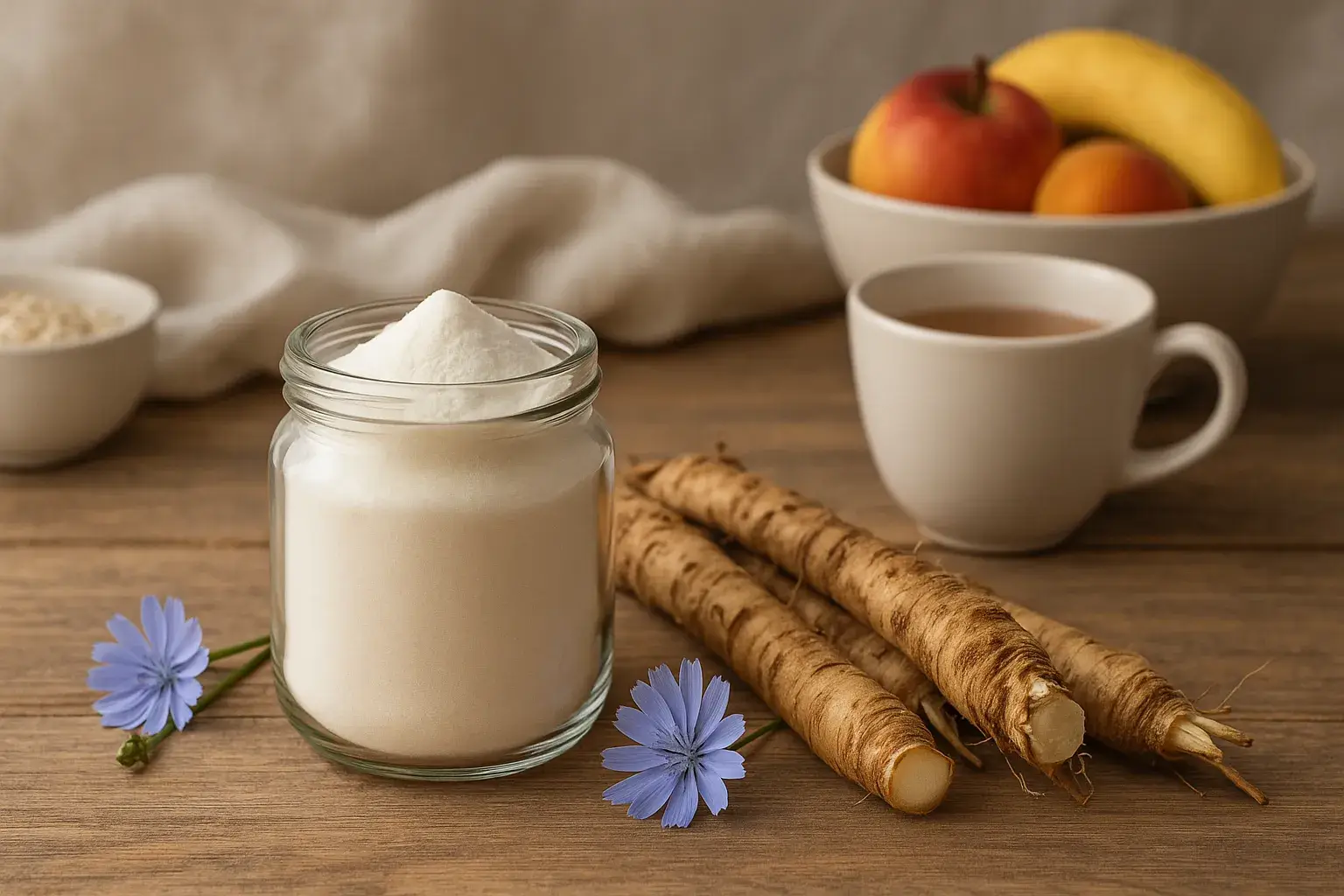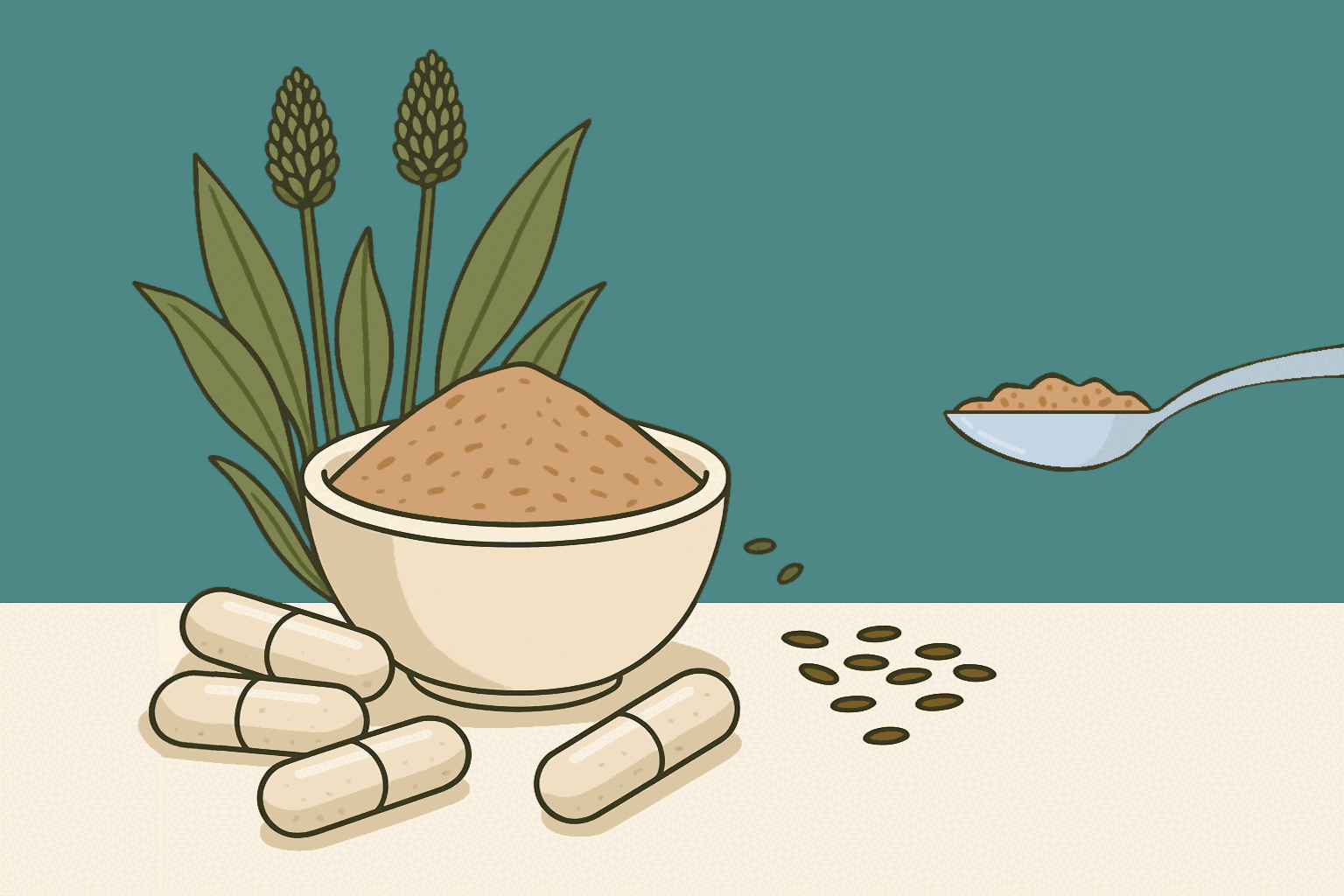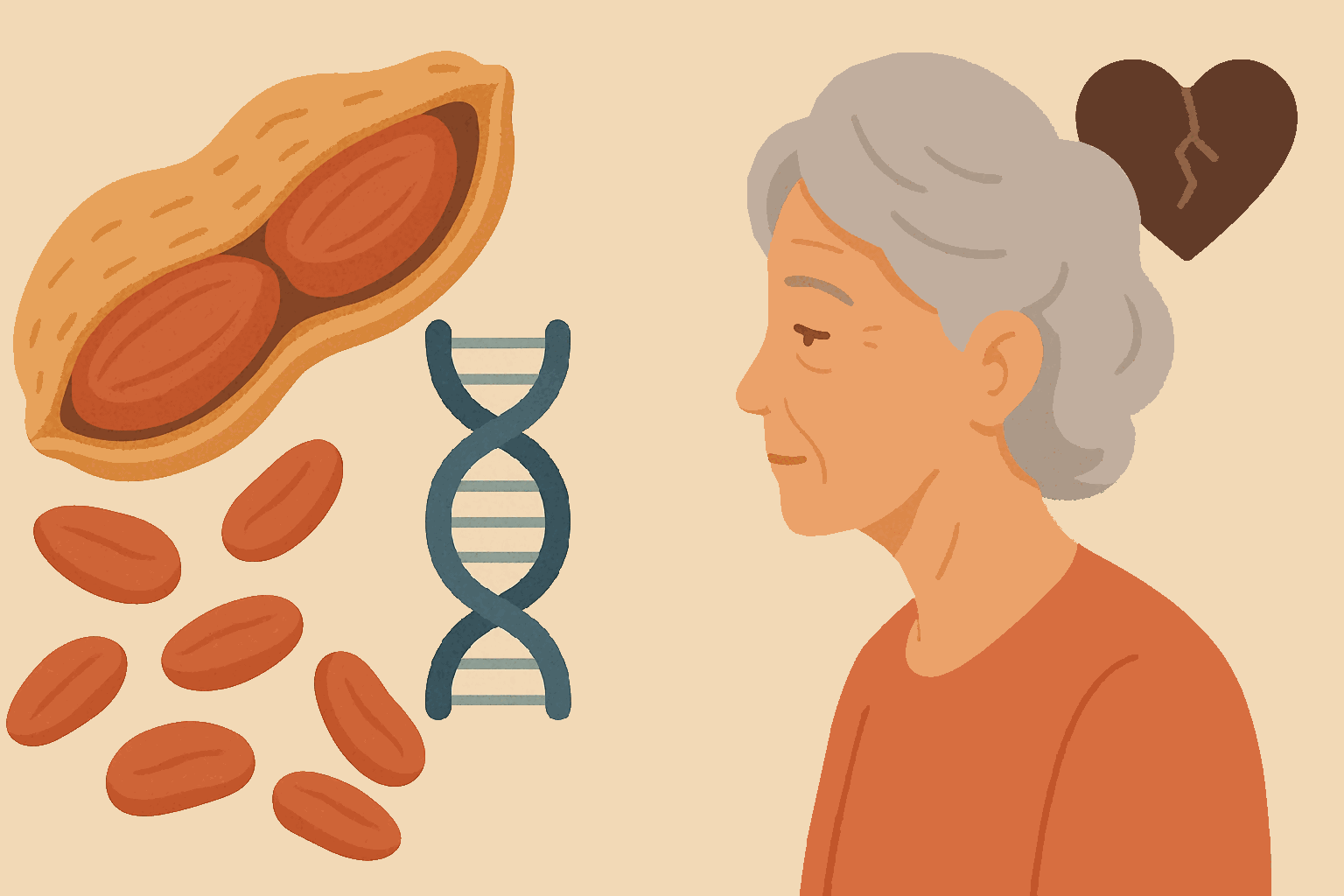
Chicory: Health Benefits & Pregnancy Safety
- Olivia Hart
- Maternal health , Nutrition , Herbal remedies
- May 29, 2025
Table of Contents
Fast Facts: Chicory & Pregnancy (TL;DR)
- Nutrient-Rich: Chicory root is a good source of inulin fiber, manganese, vitamin B6, and folate.
- Digestive Aid: Its prebiotic inulin promotes gut health and can alleviate constipation, a common pregnancy concern.
- Blood Sugar Support: Inulin may help manage blood sugar levels, relevant for gestational diabetes risk.
- Pregnancy Caution: Chicory (especially in large or concentrated amounts) may pose risks during pregnancy, including potential uterine stimulation.
- Allergy Alert: Individuals with ragweed or birch pollen allergies may react to chicory.
- Moderation is Key: Consume chicory in small, food-based amounts during pregnancy.
Chicory (Cichorium intybus), a plant celebrated for its culinary versatility and historical medicinal use, presents a compelling nutritional profile. While it offers several health advantages, its consumption during pregnancy requires a careful, evidence-based approach. This article delves into chicory’s benefits, particularly its rich inulin content, and critically examines the potential risks and safety guidelines for expectant mothers, aligning with BioBrain’s commitment to science-backed health advice.
Chicory’s Nutritional Profile: A Closer Look
Chicory root is a nutrient-dense food, yet low in calories. A half-cup (approximately 45 grams) of raw chicory root provides about 32 calories [6]. Its primary macronutrient is carbohydrate, largely in the form of inulin, a potent prebiotic fiber. Inulin can constitute up to 68% of fresh chicory root’s dry weight [8]. This high inulin content is a cornerstone of chicory’s health benefits, primarily supporting a healthy gut microbiome [2], [4].
Beyond inulin, chicory root offers several vitamins and minerals crucial for overall health and potentially beneficial during pregnancy when sourced appropriately and consumed cautiously [6]:
- Fiber: Aids digestive regularity, a common concern during pregnancy.
- Manganese: Important for bone development and metabolic processes.
- Vitamin B6: Plays a role in brain development and function.
- Phosphorus: Supports skeletal formation and energy metabolism.
- Potassium: Helps maintain fluid balance and regulate blood pressure.
- Folate: Essential for preventing neural tube defects in the developing fetus.
While this nutritional profile is attractive, the specific implications of chicory consumption during pregnancy must be weighed against potential risks, emphasizing the need for moderation and professional medical advice [1], [12].
Potential Benefits of Chicory, Especially Inulin

Enhancing Digestive Health with Inulin
Inulin, the star component of chicory root, is a prebiotic fiber renowned for its positive impact on digestive health [2], [15]. It passes undigested to the colon, where it nourishes beneficial gut bacteria like Bifidobacteria [4], [5]. This fermentation process produces short-chain fatty acids (SCFAs), which are vital for maintaining intestinal barrier function and modulating immune responses [4].
For pregnant women, who often experience constipation due to hormonal shifts and physical changes, inulin’s ability to improve bowel function by increasing stool frequency and softness can be particularly valuable [5]. Some studies suggest that prebiotic chicory root fibers are generally well-tolerated during pregnancy and can contribute to digestive comfort [5].
Antioxidant and Anti-inflammatory Properties
Chicory contains various bioactive compounds, including phenolic acids and flavonoids, which possess antioxidant properties [2], [8]. These compounds help combat oxidative stress by neutralizing free radicals, which, if unchecked, can contribute to cellular damage and inflammation. While these general health benefits are recognized, specific research on their impact during pregnancy via chicory consumption is limited.
Metabolic Implications: Blood Sugar and Beyond
Inulin from chicory may play a role in better blood sugar management by slowing glucose absorption and improving insulin sensitivity [2], [15]. This is particularly relevant given the risk of gestational diabetes during pregnancy. Dietary fibers, including those from chicory, can support balanced blood sugar levels [5]. However, direct studies on chicory for managing gestational diabetes are scarce, and medical guidance is paramount. Animal studies have suggested that inulin supplementation during gestation could have protective effects against certain stressors by improving maternal gut microbiota, but human data is needed [14] (Note: this reference pertains to a trial in ICU patients, not directly pregnancy, but illustrates inulin’s gut impact).
Potential Risks and Safety Concerns During Pregnancy
Despite its benefits, chicory consumption during pregnancy is not without concerns, primarily due to limited specific research and the presence of certain bioactive compounds [1].
Uterine Contractions or Bleeding
A significant concern highlighted by some health authorities is that chicory, particularly in large or concentrated forms, may act as an emmenagogue (to stimulate menstrual flow) or even an abortifacient, potentially inducing uterine contractions or bleeding [1], [7]. Drugs.com explicitly advises avoiding chicory during pregnancy due to documented emmenagogue and abortifacient effects [7]. This underscores the critical need for caution and avoiding medicinal amounts.
Allergic Reactions
Chicory can cause allergic reactions in individuals sensitive to plants in the Asteraceae/Compositae family (e.g., ragweed, marigolds, daisies). Cross-reactivity with birch pollen, leading to Oral Allergy Syndrome (OAS), is also possible [11]. Symptoms can range from itching and swelling to more severe reactions.
Bioactive Compounds and Potential Toxicity
Chicory contains sesquiterpene lactones, which contribute to its bitter taste and have anti-inflammatory properties. However, in high concentrations, some sesquiterpene lactones can be toxic [9]. While toxicological evaluations in rats at high doses of chicory extract did not show adverse effects [9], direct translation to human pregnancy safety, especially with varying concentrations in different chicory preparations, is not established.
Hormonal Balance and Phytoestrogens
Chicory contains phytoestrogens, plant compounds that can exert weak estrogen-like effects [13]. The impact of significant phytoestrogen intake during pregnancy on hormonal balance and fetal development is not fully understood. While dietary phytoestrogens are common, concentrated sources or significant shifts in intake warrant discussion with a healthcare provider.
Inulin in Medicinal Amounts
While inulin from food sources is generally considered safe and potentially beneficial during pregnancy [5], WebMD notes that there isn’t enough reliable information on the safety of using inulin in larger, medicinal amounts during pregnancy and advises staying on the safe side by avoiding such use [10].
Safety Recommendations and Guidelines for Pregnant Women
Given the potential risks and lack of definitive safety data for chicory (beyond typical inulin levels in food) during pregnancy, a cautious approach is universally recommended:
- Consult Your Healthcare Provider: This is the most crucial step. Before considering chicory in any form (including chicory coffee or root extracts), discuss it with your doctor, midwife, or obstetrician [1], [12]. They can provide personalized advice based on your health status and pregnancy.
- Prioritize Food-Based Inulin (If Approved): If your doctor agrees, small amounts of chicory-derived inulin naturally present in some fortified foods might be acceptable and even beneficial for gut health [5]. However, actively adding chicory root or concentrated chicory products to your diet is different.
- Avoid Medicinal/Large Doses: Given warnings about potential uterine stimulation [7] and lack of data on high-dose inulin [10], steer clear of chicory supplements or large quantities used as a herbal remedy.
- Be Aware of Allergies: If you have known allergies to related plants like ragweed or birch pollen, avoid chicory [11].
- Monitor Your Body: If you consume chicory (with medical approval) and notice any adverse reactions (digestive upset, allergic symptoms), discontinue use and inform your healthcare provider immediately.
- Seek Nutrient Alternatives: Many of chicory’s nutrients, like folate and fiber, can be safely obtained from other pregnancy-friendly foods such as leafy greens, fruits, and whole grains.
The American Pregnancy Association emphasizes that while some herbs might be safe in food amounts, medicinal amounts can be harmful. It’s always best to err on the side of caution and seek professional guidance [12].
Conclusion: Balancing Potential with Precaution
Chicory, particularly its inulin-rich root, offers appealing nutritional and digestive health benefits. Its prebiotic fiber can support gut health and may aid in blood sugar regulation. However, when it comes to pregnancy, the potential risks—including uterine stimulation, allergic reactions, and effects of bioactive compounds—must take precedence, especially due to the limited clinical research specifically evaluating chicory’s safety for expectant mothers and their developing babies.
The overarching consensus is one of caution. While inulin from chicory as a food ingredient may be well-tolerated [5], the use of chicory root itself or its extracts during pregnancy should only be considered after thorough consultation with a healthcare provider [1], [7], [12]. Prioritizing maternal and fetal well-being means making informed dietary choices grounded in scientific evidence and professional medical advice. Further research is essential to establish clear guidelines for chicory consumption during this critical life stage.
Frequently Asked Questions (Q&A)
Q1: What are the main nutritional benefits of chicory root?
Q2: Is chicory safe to consume during pregnancy?
Q3: Can chicory help with constipation during pregnancy?
Q4: Are there any allergy concerns with chicory?
Q5: What is inulin and why is it important in chicory?
Disclaimer
The information provided on BioBrain is intended for educational purposes only and is grounded in science, common sense, and evidence-based medicine. It is not a substitute for professional medical advice, diagnosis, or treatment. Always consult a qualified healthcare provider before making significant changes to your diet, exercise routine, or overall health plan.
References
- Nayana Ambardekar, MD (Medically Reviewed) (2021) "Chicory in Pregnancy: Safety, Risks, and Side Effects"
- Kierra Brown, RD (Contributor), Hannah Harper (Editor) (2024) "Chicory: Benefits, Nutrition, and Risks"
- Ahmed M, Hwang JH, Choi S, Han D. (2017) "Safety classification of herbal medicines used among pregnant women in Asian countries: a systematic review."
- Sheng X, Ji G, Zhang F. (2023) "Immunomodulatory effects of inulin and its intestinal metabolites."
- DietaryFiber.org Editorial Team "Pregnant Women - Supporting health during pregnancy"
- Malia Frey, M.A., ACE-CHC, CPT (Author), Richard N. Fogoros, MD (Reviewer) (2024) "Chicory Root Nutrition Facts and Health Benefits"
- Drugs.com Professional "Chicory Uses, Benefits & Dosage"
- Waegebaert L, et al. (2022) "Chicory: Understanding the Effects and Effectors of This Functional Food."
- Shoaib A, et al. (2013) "Toxicological evaluation of a chicory root extract."
- WebMD Editorial Contributors, (Medically Reviewed by Poonam Sachdev, MD) "INULIN: Overview, Uses, Side Effects, Precautions, Interactions, Dosing and Reviews"
- Wyndly Clinical Team "Chicory Root Allergy: Symptoms, Treatment, and Precautions"
- American Pregnancy Association Editorial Team "Herbs and Pregnancy"
- Selma-Royo M, et al. (2020) "Effects of Dietary Phytoestrogens on Hormones throughout a Human Lifespan: A Review."
- Freedberg DE, et al. (2025) "A phase 2 randomized, placebo-controlled trial of inulin for the prevention of gut pathogen colonization and infection among patients admitted to the intensive care unit for sepsis."
- Sanmiguel C, Sanz Y, Moreno-Aliaga MJ, Martínez JA. (2024) "Health Effects and Mechanisms of Inulin Action in Human Metabolism."
Tags :
- Chicory root
- Inulin fiber
- Pregnancy nutrition
- Digestive health
- Prebiotics
- Maternal wellness
- Herbal safety
- Antioxidants
- Chicory coffee alternative
- Blood sugar regulation

